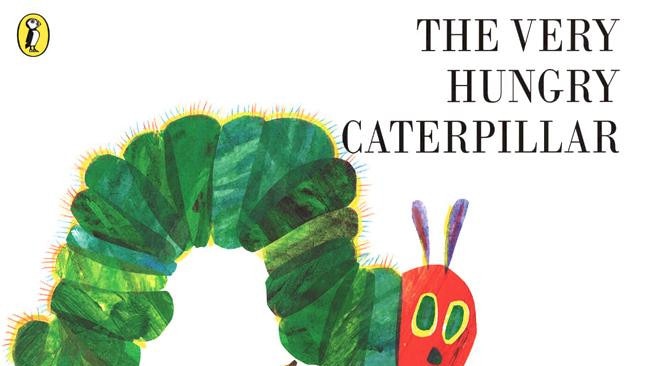Hungry catepillar should eat only “healthy” foods
Lessons on healthy eating invading classic children’s books is robbing kids of fun according to experts.
NSW
Don't miss out on the headlines from NSW. Followed categories will be added to My News.
YOUNG preschool age children must reimagine the story of classic children’s book The Very Hungry Caterpillar so he only eats “healthy” foods.
The edict issued by the NSW Department of Education as part of lesson plans for the “home environment” when a child’s preschool is closed has prompted experts to warn that the push to include moral messaging in everything is taking the fun out of childhood.
Under one guide called Healthy Lifestyle, children must read Eric Carle’s 1969 picture book The Very Hungry Caterpillar.
“Retell or re-create the story, using the healthy foods that they like to eat,” the guide states.
In another learning unit on diversity, students must learn the name of the local Aboriginal land council and in a seperate exercise they are told to role-play with each other so they know how they are different from their peers.
“Use role-play at different times during the day and have practice discussions about how you might be the same in some ways and different in other ways,” it says.
In a “wellbeing” lesson for infants, parents were told they should “use Yoga as transition time breaks” and to get out a “a Tibetan singing bowl to allow children to concentrate on being present and alert”.

When it comes to sustainability, “intentional teaching strategies” should be used to make children “think about different ideas and options such as recycling, composting … buying used goods and refusing things like plastic straws and single use plastic.”
Non-biodegradable products must be researched and parents should “discuss reasons why things that don’t bio-degrade can hurt plants or animals”.
Psychiatrist Dr Tanveer Ahmed said the moves to infuse everything in preschool with a moral message, however noble, was counter-productive.
“It is taking the fun, enjoyment, and imagination out of these iconic stories when you try and infuse them with a goody-goody public health or sustainability message,” he said.
Rather than doing sustainability activities he said parents and preschool operators should be learning words, communicating with their children to improve their language skills.
“Trying to add this extra edge of public health or sustainability education is counter-productive, overly intrusive, a form of social engineering and more likely to damage their development,” he said.
“It is either just plain stupid or outright damaging … On a fundamental level it is less enjoyable and fun.”
Australian Childcare Alliance NSW president Lyn Connolly said preschool could be about education but it was a tall order for parents to replicate the skill with which experienced early-childhood educators do it.
“It is a good idea for the parents to do this — but they have a full time job, they’ve got husbands and wives, they have gardening and cleaning — how many hours are there left in the day to do research on sustainability?”
Crows Nest mum Sarah Peddie McGuirk said she wanted her kids Henry and Sadie to enjoy the story of The Very Hungry Caterpillar as it was originally written in 1969.
“I think it’s important for kids to learn about healthy eating being kind to the planet and our diverse culture,” she said.
“But we don’t want to be too over the top, you just need to just let kids be kids. Let the caterpillar eat the cake.”
A Department of Education spokesman said parents had the flexibility to choose which activities they did.
“The goal of preschool is for children to learn through play and fun,” she said.
“We can assure the community that preschoolers continue to enjoy The Very Hungry Caterpillar as a wonderful and much loved classic story.


